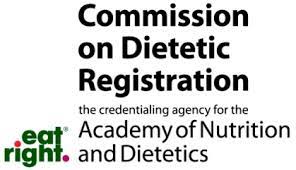
Challenges and Considerations in Multi-organ Transplantation
Activity description
This activity consists of a recorded presentation from the "Essentials of Oncology, Solid Organ and Blood/Marrow Transplant Management for the Health Care Team" conference held in Scottsdale, Ariz., March 14–15, 2022.
Despite the large increase in the number of multi-organ transplants (MOTs) performed over the past few years, challenges still exist in this arena. Among these unresolved issues are a lack of standardized MOT eligibility criteria across institutions, regions and different organ combinations. Ethical issues have also arisen regarding equity in organ allocation amidst a limited organ supply, as many MOT candidates get priority allocation for nonprimary organs versus individuals requiring that organ as a single transplant; this prioritization may impact optimal recipient and graft survival as well. In this session, learn more about multi-organ allocation and its accompanying challenges, risks, benefits, and expected outcomes, as well as the limitations of MOT for potential recipients.
Provided by
This activity is provided by OptumHealth Education.
Commercial support
There was no commercial support for this activity.
Required hardware/software
Please ensure you are using the web-browser Chrome and disable any pop-up blocking software. Click here for information on how to enable pop-ups.
Target Audience
This activity is designed to meet the educational needs of case managers, nurses, pharmacists, pharmacy technicians, physicians, psychologists, social workers, dietitians, and other health care professionals who are interested in multi-organ transplantation.
Learning Objectives
At the end of this educational activity, participants should be able to:
- Review existing data on the prevalence, benefits, risks, limitations, and expected outcomes of MOT, including the positive impact of interdisciplinary health care team collaboration on outcomes.
- Describe the heterogeneity of existing MOT criteria regarding patient selection and different organ combinations and the impact on survival rates for single- and multiple-organ recipients and waitlisted candidates.
- Discuss ethical implications of MOT organ allocation equity under the current framework, issues that must be addressed and potential impacts on future policy regarding MOT.
Additional Information
| Attachment | Size |
|---|---|
| 5.22 MB |
Faculty
 Valluvan Jeevanandam, MD
Valluvan Jeevanandam, MD
Cynthia Chow Professor of Surgery
Chief, Section of Cardiac Surgery; Director, Heart and Vascular Center
University of Chicago Medicine
Chicago, IL
About the presenter
Dr. Valluvan Jeevanandam specializes in the surgical management of heart failure and is an expert in high-risk cardiac surgery. He has performed more than 1,000 heart transplants — including the total artificial heart — and countless cardiac surgery procedures, including transmyocardial laser revascularization, complex valve reconstruction and minimally invasive coronary artery bypass graft surgery. Dr. Jeevanandam has a special interest in treating patients traditionally considered inoperable. He has repaired damaged hearts in several patients awaiting transplant, enabling those patients to forgo transplantation. He also has successfully performed transplants involving patients who do not fit the standard criteria for transplant. Additionally, Dr. Jeevanandam has received national attention for his skill in performing bloodless cardiac surgery, which requires the use of precise surgical techniques to minimize blood loss during the procedure — sparing the patient the need for a blood transfusion.
Dr. Jeevanandam is a pioneer in the field of mechanical circulatory-assist devices. In October 2000, he was the first surgeon in the world to successfully implant the CardioVad, a revolutionary, permanent circulator-assist device that boosts heart function in patients with severe heart failure who are not candidates for transplant. He continues to be a recognized leader in the field of advanced heart failure and currently serves on the FDA Device Panel. He is a world-renowned surgeon, having started high-risk and cardiac-assist programs in China, India, the Middle East, and South America. Dr. Jeevanandam was one of the physician leaders of the transplant care team that made history in December 2018 after performing two triple-organ transplants within 27 hours, replacing the failing hearts, livers and kidneys of 29-year-olds Sarah McPharlin and Daru Smith.
Planning Committee
Elizabeth Albert, MD
Clinical Activity Manager
OptumHealth Education
Eden Prairie, MN
Matthew Cooper, MD
President, UNOS Board of Directors;
Director, Kidney and Pancreas Transplantation
Medstar Georgetown Transplant Institute;
Professor of Surgery
Georgetown University School of Medicine
Washington, DC
Rebecca Gleason, RN, CCM
Activity Manager
OptumHealth Education
Eden Prairie, MN
Alan N. Langnas, DO, FACS
Professor of Surgery
Director, Center of Transplantation
Chief, Section of Transplantation,
Department of Surgery
University of Nebraska Medical Center;
Director of Liver Transplantation
Nebraska Medicine
Omaha, NE
C. Fred LeMaistre, MD
Senior Vice President
Senior Vice President, Market Operations
Physician-in-Chief, Hematology
Sarah Cannon
Nashville, TN
Tina Rydland, PharmD
President
ArdentCare Solutions
Denver, CO
Disclosures of relevant financial relationships
In accordance with the Accreditation Council for Continuing Medical Education's (ACCME) Standards for Integrity and Independence in Accredited Continuing Education, OptumHealth Education (OHE) requires all those in control of educational content to disclose their financial relationships with ineligible companies within the prior 24 months. Ineligible companies are defined by the ACCME as companies whose primary business is producing, marketing, selling, re-selling, or distributing health care products used by or on patients. Individuals must disclose all financial relationships, regardless of the amount, with ineligible companies and regardless of their view of the relevance of the relationship to the education. OHE ensures that the content is independent of commercial bias.
Dr. Jeevanandam has indicated that he is a consultant and is on the advisory board for Abbott.
The activity planners have no financial relationships to disclose.
Method for calculating CE credit
CE credit was calculated by the complexity of content.
Accreditation Statement In support of improving patient care, OptumHealth Education is jointly accredited by the Accreditation Council for Continuing Medical Education (ACCME), the Accreditation Council for Pharmacy Education (ACPE), and the American Nurses Credentialing Center (ANCC) to provide continuing education for the health care team.
In support of improving patient care, OptumHealth Education is jointly accredited by the Accreditation Council for Continuing Medical Education (ACCME), the Accreditation Council for Pharmacy Education (ACPE), and the American Nurses Credentialing Center (ANCC) to provide continuing education for the health care team.
Credit designation statements This activity was planned by and for the health care team, and learners will receive 0.75 Interprofessional Continuing Education (IPCE) credits for learning and change.
This activity was planned by and for the health care team, and learners will receive 0.75 Interprofessional Continuing Education (IPCE) credits for learning and change.
Nurses
The participant will be awarded up to 0.75 contact hour(s) of credit for attendance and completion of supplemental materials.
Nurse practitioners
The American Academy of Nurse Practitioners Certification Program (AANPCP) accepts credit from organizations accredited by the ACCME and ANCC.
Pharmacists/Pharmacy technicians
This activity is approved for 0.75 contact hour(s) ([0.075] CEU) in states that recognize ACPE.
Attending the full program will earn 0.75 contact hour(s).
Unique Activity Number(s): JA0007123-0000-22-183-H01-P/T
Physicians
OptumHealth Education designates this enduring activity for a maximum of 0.75 AMA PRA Category 1 Credit(s)™. Physicians should claim only the credit commensurate with the extent of their participation in the activity.
PAs
The American Academy of Physician Assistants (AAPA) accepts credit from organizations accredited by the ACCME.
Case managers
The Commission for Case Manager Certification has approved this program for a maximum of 0.75 clock hour(s) for Certified Case Managers (CCM).
Dietitians
Completion of this RD/DTR profession-specific or IPCE activity awards CPEUs (One IPCE credit=One CPEU).
If the ac tivity is dietetics-related but not targeted to RDs or DTRs, CPEUs may be claimed which are commensurate with participation in contact hours (One 60 minute hour=1 CPEU).
tivity is dietetics-related but not targeted to RDs or DTRs, CPEUs may be claimed which are commensurate with participation in contact hours (One 60 minute hour=1 CPEU).
RD's and DTRs are to select activity type 102 in their Activity Log. Performance indicator selection is at the learner's discretion.
Psychologists and social workers
Participants must have attended the entire Web-based activity and completed an evaluation to receive a certificate. Partial credit is not available.
Psychologists
OptumHealth Education is approved by the American Psychological Association (APA) to offer continuing education for psychologists. OptumHealth Education maintains responsibility for this program. 0.75 CE hour.
Social Workers
| As a Jointly Accredited Organization, OptumHealth Education is approved to offer social work continuing education by the Association of Social Work Boards (ASWB) Approved Continuing Education (ACE) program. Organizations, not individual courses, are approved under this program. State and provincial regulatory boards have the final authority to determine whether an individual course may be accepted for continuing education credit. OptumHealth Education maintains responsibility for this course. Social workers completing this course receive 0.75 enduring continuing education credit. |
Attendance
A certificate of attendance will be provided to learners upon completion of activity requirements, enabling participants to register with licensing boards or associations that have not been preapproved for credits. To apply for credit types not listed above, participants should use the procedure established by the specific organization with which they wish to obtain credit.
Available Credit
- 0.75 ACPE - Pharmacists
- 0.75 ACPE - Pharmacy Technicians
- 0.75 AMA - Physicians
- 0.75 ANCC - Nurses
- 0.75 APA - Psychologists
- 0.75 Attendance - General Attendance
- 0.75 CCMC - General - Case Managers
- 0.75 CDR - Dietitians
Prior to beginning this activity, please ensure you are using the web-browser Chrome and disable any pop-up blocking software. Click here for information on how to enable pop-ups.
You must be logged into your account to participate in this activity. Get started by clicking the down arrow and then "Start" under “Webcast”; then follow the prompts at the bottom of the screen. At the end of the activity, you will be able to view, save or print your certificate of participation. A complete listing of all of your activities can be found under “My Account,” “My Activities.”

 Facebook
Facebook Twitter
Twitter LinkedIn
LinkedIn Forward
Forward